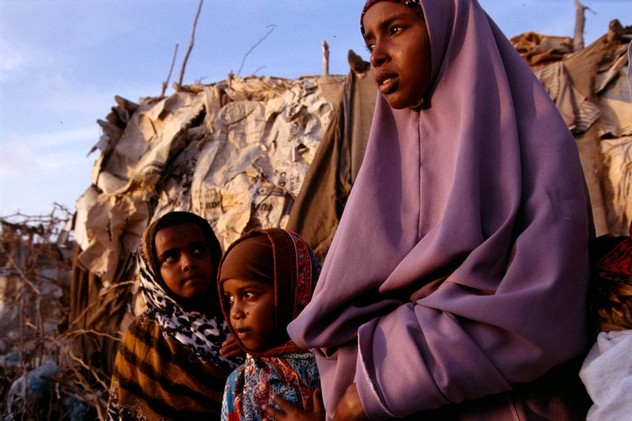Somalia is currently experiencing a drought that has led to severe food insecurity for more than the 38% of the population making the humanitarian situation in the country very fragile. Poor April-June rains coupled with poor October-December rainfall prospects have led to drought conditions in most parts of the country and subsequent worsening of food insecurity. Efforts to reduce levels of vulnerabilities continue to be undermined by irregular weather patterns. Vegetation conditions have worsened and intensified drought continue to affect pasture, water, livestock and crops.
According to the FAO-managed Food Security and Nutrition Analysis Unit (FSNAU) and the Famine Early Warning Systems Network (FEWSNET), more than 1.1 million people cannot meet their daily food requirements today, while another 3.9 million Somalis require livelihood support to reduce the risk of sliding into a crisis.
For those reasons the Somalia Ngo Consortium called all the actors involved to take action and respond to calls for aid from the humanitarian realities operating in the country, in order to provide a quick answers to the need of the population, who have been facing climate changes effects and food insecurity for far too long now. The statement, signed by Cesvi and other 39 NGOs, also provides suggestions and guidelines to donors, other NGOs, and humanitarian coordinating structures: only a shared approach will help to go through the emergency.
Cesvi works in Somalia since 2006 with projects on Health, Food security and Nutrition, Sustainable growth and Protection. Most of the projects foresee a component aimed at reducing the vulnerability to drought and other shocks by assisting the population in identifying and implementing resilience strategies such as risks management and drought-resistant agricultural techniques. The goal is to make the community able to respond to shock with appropriate tools and capacities, but there is still a long way to go, and continue climate emergencies won’t help it to reach independence from aids.
“As most of Somalia is facing a major crisis, we are given the opportunity to use the lessons of the great famine of 2011 and to fulfill our common responsibility. The earlier we act, the more likely we are to avoid the loss of human lives and massive displacement of population – and to protect resilience and development perspectives. So will we act now – or regret later?” Gianmaria Pinto – Building Resilience Communities in Somalia (BRCiS Consortium) – Chief of Party.
Please click on this link to view the call for action.
Please click on this link to view the press release.
Cover Photo: Fulvio Zubiani
